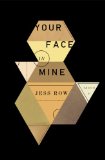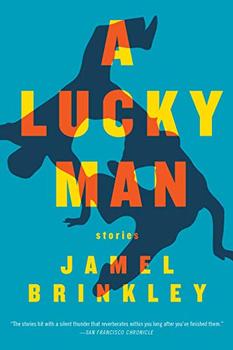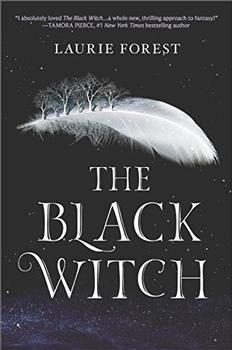Summary | Excerpt | Reviews | Beyond the book | Read-Alikes | Genres & Themes | Author Bio

Kelly, a white man, is walking across the parking lot of a grocery store, when he sees a black man walking toward him. He knows he has never seen this person before, but he cannot shake the feeling that he knows him somehow. As they move towards each other, the feeling becomes unshakable, until finally their paths cross and the black man says to him, "Kelly. I bet you're wondering why I know your name." Kelly responds, "I'm sorry. Do I know you?" And the black man says, "It's Martin."
Kelly's initial feeling makes sense then: Martin was one of his best friends in high school, they played in a band together, and so of course Kelly would recognize him. But it also makes no sense: Martin was white. Twenty years later, here he is standing in front of Kelly, undeniably Martin, but a black man.
Here is the passage that follows, in the opening pages of Your Face in Mine, Jess Row's riveting debut novel:
As a child I imagined there were hidden places — the tangle of bushes dividing the north and south lanes of the freeway, the fenced-in, overgrown side yard on the far side of our elderly neighbor's house — that held gaps, portholes, in the fabric of the world, and if I crawled into one of them I would become one of the disappeared children whose faces appeared on circulars and milk cartons and Girl Scout cookie boxes, whose cold bodies were orbiting the earth as we spoke, and every so often bumped into the Space Shuttle and slid off, unbeknownst to the astronauts inside. How was I supposed to know that I would only have to cross town to find my own gap, my own way into the beyond?
As it turns out, Martin's perplexing reappearance in Kelly's life has come at a perfect time. After the sudden death of his wife and daughter, Kelly has recently returned to Baltimore, where he spent his youth. Unmoored, "a kind of obelisk of grief," he takes a job at a public radio station that he knows is a sinking ship. One can see he's waiting for something to happen. Enter Martin, who says he is the world's first successful beneficiary of "racial reassignment surgery," and who has a curious business proposal for his friend: sign on to write the story of Martin's life.
In a sense, Kelly's relationship with this new Martin is a classic journey "down the rabbit hole," with every level of reality giving way to a deeper one. What keeps it interesting is the question of Kelly's motivation; at times it's clear why he's going along with Martin's increasingly ominous grand plan (in other words, what he's getting out of it), but when talk turns to a tragedy that happened in their senior year of high school — the event that ultimately drove them apart for twenty years — the reader begins to suspect that there are deeper, darker intentions at play for both men. In a way, reading the book itself is also a dive down the rabbit hole.
The weightier subjects explored here — identity, race, addiction, crime, politics, poverty — provide more than enough sustenance to satisfy, but there are smaller morsels to be savored too, like the nostalgia factor. Much of the novel reads like a veritable cultural playlist of the '80s and '90s, calling up the music, movies, trends, and news stories most readers will no doubt remember. And then there is Row's finely tuned language. In particular, I was often delighted by his small turn of phrase: a man's nose is "like a lump of pancake batter dropped onto the griddle of his face;" a closed laptop sits alone on a table, "a mute clam;" a mother and daughter ride to a funeral "in the backseat...collapsed against either door, their black dresses folded about them, like dying crows."
The beautifully controlled language helps keep a fairly outlandish plot seem entirely plausible, but in the end what truly grounds readers in the world we know is the smaller story beneath the larger one: the story of childhood friends, how they change us, and what becomes of them.
![]() This review was originally published in The BookBrowse Review in August 2014, and has been updated for the
October 2015 edition.
Click here to go to this issue.
This review was originally published in The BookBrowse Review in August 2014, and has been updated for the
October 2015 edition.
Click here to go to this issue.

If you liked Your Face in Mine, try these:

by Jamel Brinkley
Published 2019
Jamel Brinkley's stories reflect the tenderness and vulnerability of black men and boys whose hopes sometimes betray them, especially in a world shaped by race, gender, and class - where luck may be the greatest fiction of all.

by Laurie Forest
Published 2018
A new Black Witch will rise…her powers vast beyond imagining.
Your guide toexceptional books
BookBrowse seeks out and recommends the best in contemporary fiction and nonfiction—books that not only engage and entertain but also deepen our understanding of ourselves and the world around us.